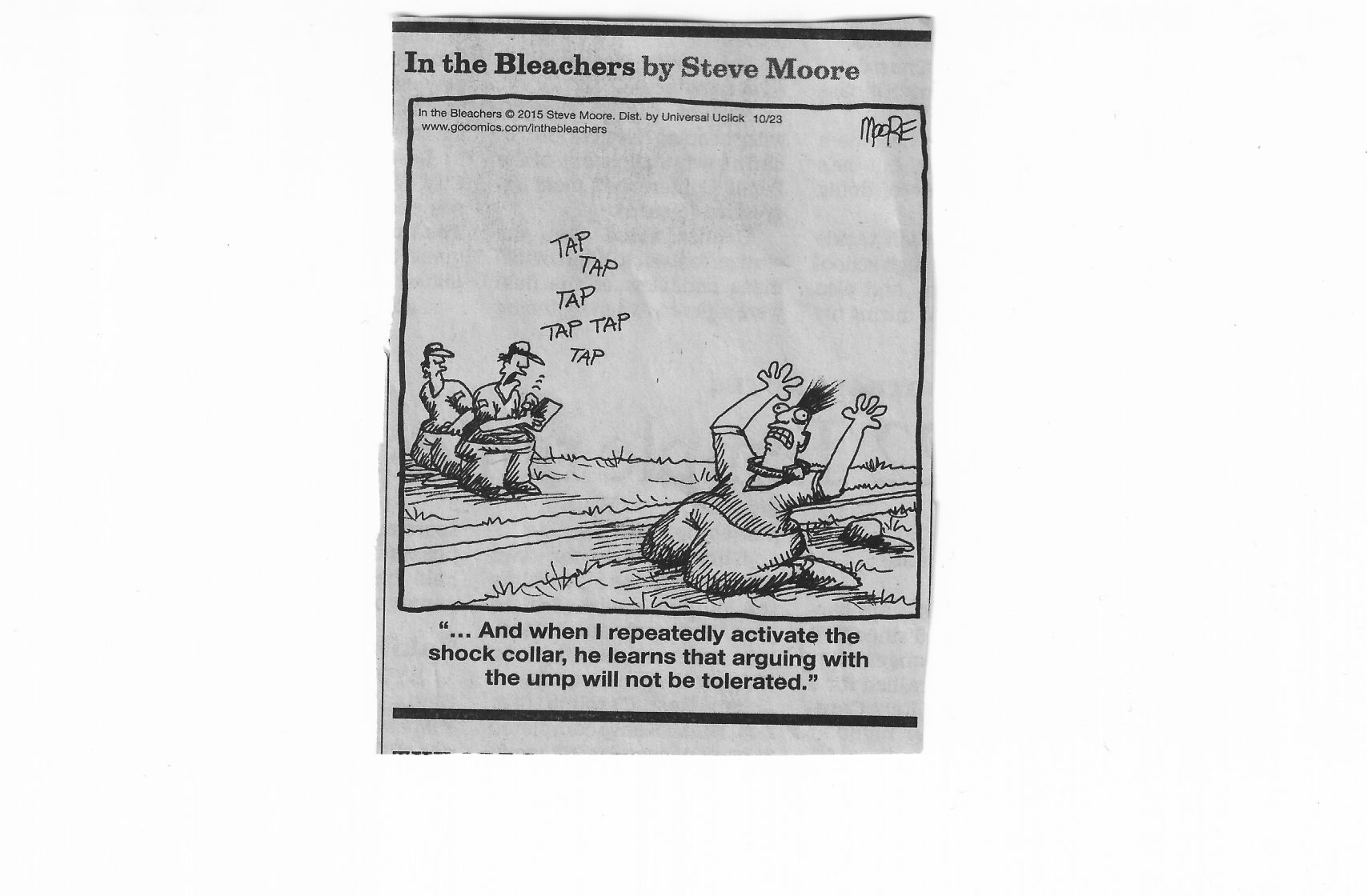Example of an argument
You make a call on a hard hit down the line and you know without a doubt that you got it correct. You were in position, saw the whole thing with the correct angle and distance, had good timing, and ‘sold’ the call well but here comes the coach.
The beginning
• First thing that usually hits your mind while he’s coming is: “Did I screw-up?” You run through all the things that I said you did correct and now you know you’re right.
• When the coach gets there, follow the Doug Harvey Rule: don’t say anything for 20 seconds! Let the coach rant and rave, explain or discuss, point and complain.
• When he has gone through his entire speech, slow things down and ask, “OK Coach, now tell me exactly what you saw!”. Many times when coaches and managers come out to argue they didn’t really see the play . . . they may have been talking to someone, looking elsewhere, or just plain not paying attention.
• Always be thinking, “How can I keep this guy in the game!”
The umpire’s turn
• After the coach has explained everything to you, slow down, again! Now you get one chance to explain exactly what you saw and why you called it . . . use that time wisely.
• When you have completely explained your call simply tell the coach, ” Now, that’s what I called and all the elements were there to make that call; now we need to get back to playing ball, Coach! Let’s play ball.”
• Turn and walk away, no anger, no showboating, just walk away. MAKE HIM FOLLOW YOU IF HE WANTS TO CONTINUE THE ARGUMENT. If you are the base umpire in the infield, walk towards the outfield or to your position. There’s no reason for him to follow you. If he does follow he starts to ‘cross the line.’ If you are the plate umpire move towards the plate. Again, if the coach follows, he is making a statement.
The coach’s next volley
• IF the coach follows you, there is one more chance to diffuse the situation. MAKE SURE YOU DON’T PLACE YOURSELF IN A ‘NO WIN’ SITUATION. In other words, make sure you don’t say anything that closes the door to getting the argument over and ‘keep the coach in the game.’
• One of the biggest problems we face is saying something stupid like, “One more word coach and you’re gone!” This is an irretrievable position. Don’t draw lines in the sand. The challenge is set and most of the time the manager will accept that challenge.
• After controlling the urge to make a brash statement, simply turn to the coach/manager and say, “OK, I thought we were clear . . . all this is doing is delaying us from playing ball. Both teams want to play, all the fans want to see a game and it appears to me that you are the only one delaying that opportunity . . . Let’s Play!” And walk away . . . for the final time!
Wrap it up

• Don’t argue again! It is OVER. You have reached ‘The Point’. You have been fair, it is now the managers/coaches choice if he decides to eject himself.
• You don’t want to come across as uncommunicative, curt (rude), or abrasive. As a general rule, if you take a moment to compose your thoughts, keep what you say as short and to the point and steer clear of rule references, seven syllable words and extraneous (irreverent) information. What you say then will be much better and well received.
• Remember, some calls can be handled openly and aggressively (interference, obstruction, balks, outs and safes, etc). What will keep you out of trouble, is hustle, starting the game on time, getting the angles, being approachable, being professional at all times; in other words, take care of business. Always pre-game and post game. You are a professional and are being paid to be so.
st game. You are a professional and are being paid to be so.
